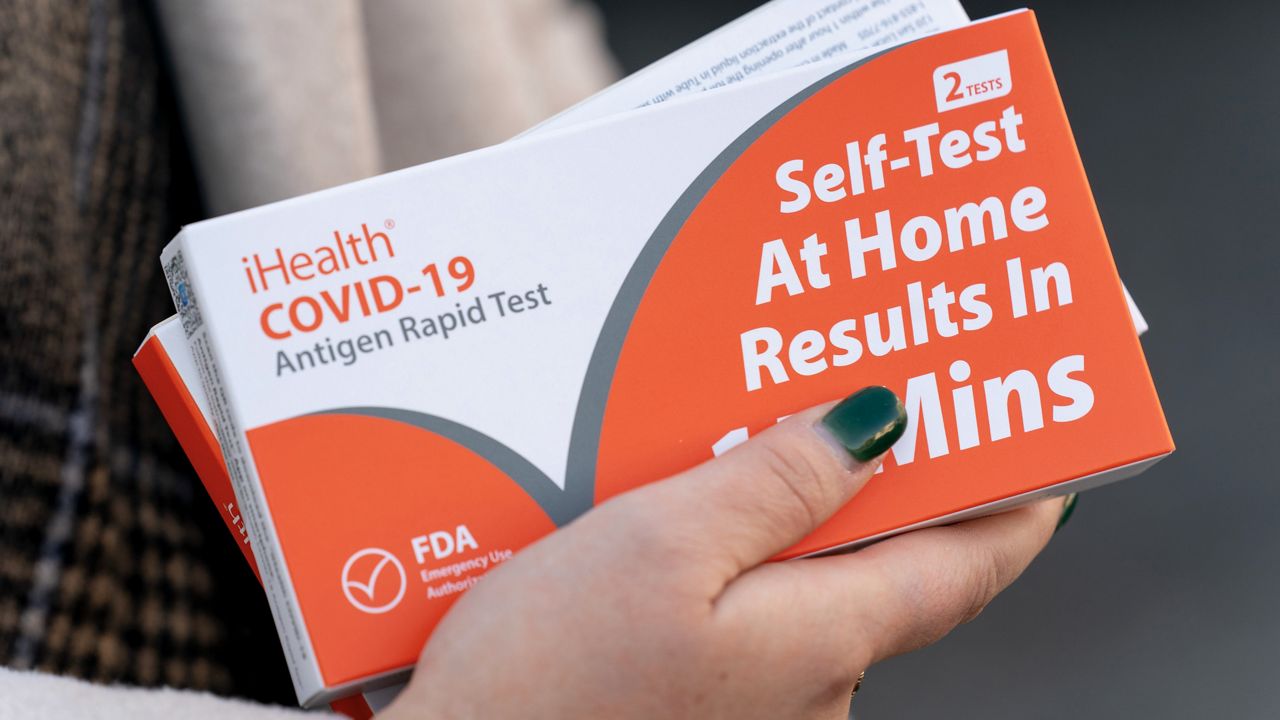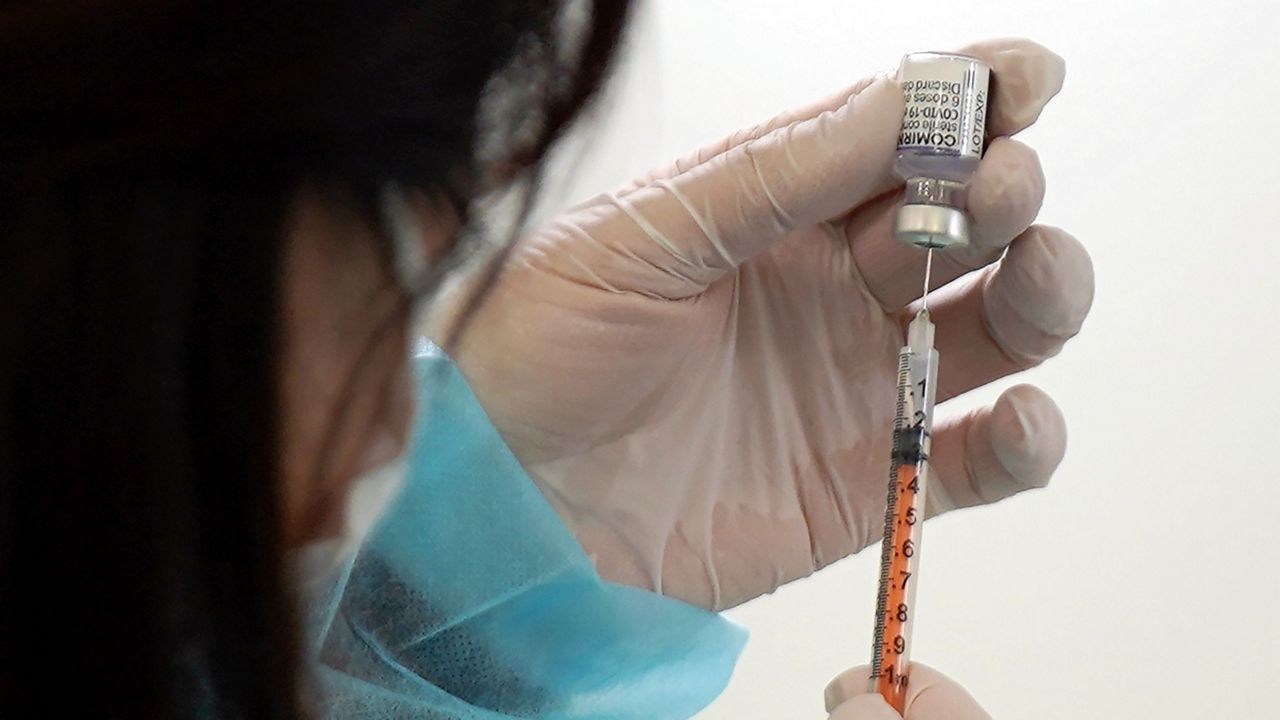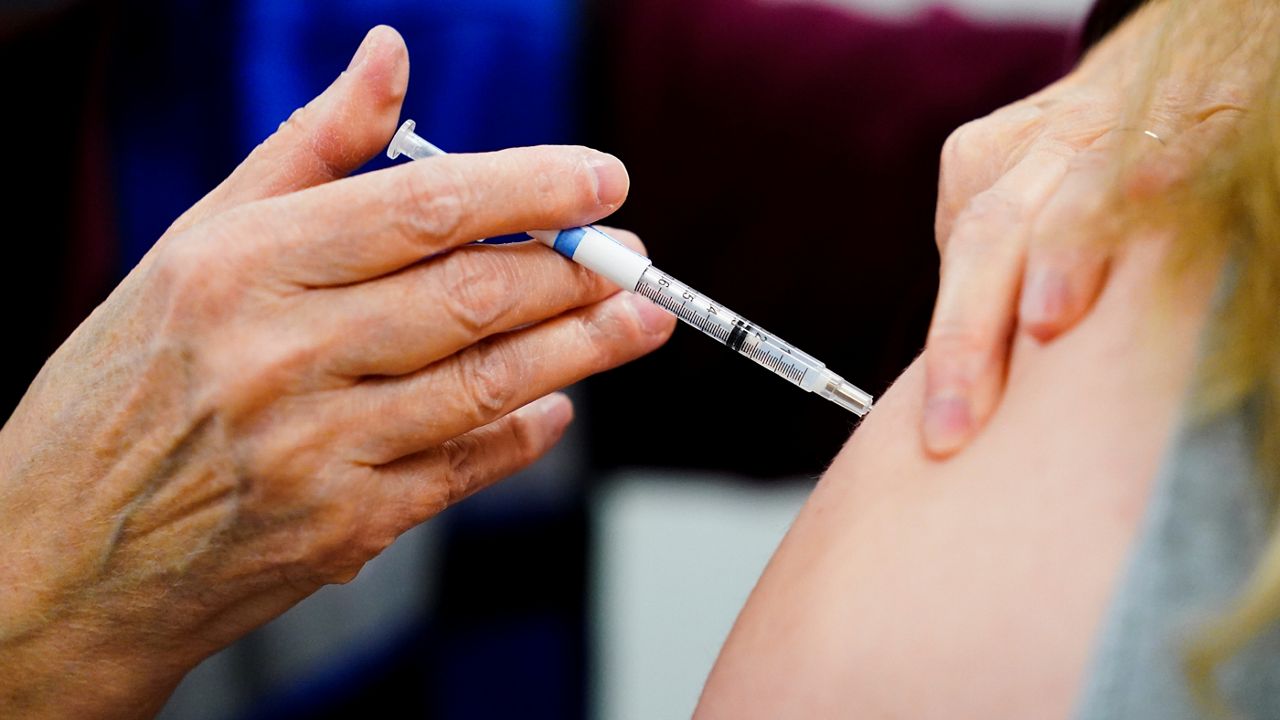Around the country, public health officials are warning about new winter coronavirus spikes as the new and even more contagious omicron variant becomes the dominant COVID-19 strain in the United States.
Omicron accounted for almost 75% of all new coronavirus cases detected in the United States last week, according to the Centers for Disease Control and Prevention.
“The highly contagious variant, Omicron, is beginning to spread rapidly and is expected to cause the highest rates of COVID-19 infections of the pandemic in the coming weeks,” the North Carolina Department of Health and Human Services said this week.
The state could see as many as 10,000 new cases a day from omicron in the coming weeks, said DHHS Secretary Dr. Mandy Cohen.
On Wednesday, DHHS reported almost 5,000 new cases and said 1,680 people were hospitalized with the virus.
In North Carolina, public health officials say delta is likely still the dominant strain, but omicron is now found around the state, Cohen said at a news conference this week.
“The omicron variant is two to three times as contagious as the delta variant, making it four to six times as contagious as the original COVID-19 virus,” DHHS said.
“Early evidence suggests that illness from the omicron variant may be less severe,” Cohen said, but it’s still too early to be sure. “We’re expecting to see many more cases here in North Carolina in the coming weeks and months.”
Cohen this week issued a new secretarial advisory, urging people to get vaccinated and boosted.
The vaccines do not appear to protect people as well against omicron compared with earlier variants, Cohen said. But evidence from research at Duke University and other institutions shows booster shots make the vaccines much more effective.
While not giving as much protection against getting the virus, research shows vaccinated and especially boosted people are much less likely to get severely ill or die from the virus.
Vaccines are available for anyone 5 and older. Booster shots are available for people over 16 who got their last shot at least 6 months ago.
Gov. Roy Cooper called a news conference earlier this week to urge people to get vaccinated and boosted before the holidays.
He said vaccines are still the best way to stay safe. But he also said people should try to keep gatherings outside, asked people to wear a mask when in indoor public areas, and said people should get tested.
State and federal public health officials say people should get tested before traveling or gathering with friends and family. People who travel should get tested again when they return home.
The advice all sounds like what public health officials said before the holidays in 2020, when travel and gatherings led to a massive winter spike in cases in North Carolina and across the country.
Politicians and public health experts have been pushing people to get COVID tests before getting together with others over the holidays.
“If you plan to gather with family and friends, find a way to get tested before you do,” Cooper said. “Schedule an appointment or have at-home rapid tests ready. We’re urging our partners to ramp up testing statewide to make it more available.”
But there’s been reports around the country of long lines for PCR tests and pharmacies running out of take-home tests.
On Wednesday, Mecklenburg County said it had run out of the free tests being handed out at libraries.
“Due to nationwide supply chain issues, the number of test kits available changes on a daily basis,” the county said.
The president this week announced a plan to distribute 500 million home testing kits, but that program will take weeks to ramp up.
In North Carolina, many pharmacies still have take-home tests available for sale. County public health departments are still running COVID test sites around the state.
See DHHS’s testing page for more details on where and how to get tested for COVID-19.
The governor this week again said he is not planning any new statewide restrictions. But many of the most populous counties and cities in North Carolina still have indoor mask mandates.
New Hanover County, which dropped its mask mandate last month, plans to discuss a new requirement for wearing face coverings in public indoor spaces.
“The Health and Human Services Board is going to discuss COVID-19 metrics and trends, data compared to last year at this time, and other statistical analysis as it relates to where we are in the pandemic after the new year and whether we need to reinstate our face coverings health rule,” said Health and Human Services Board Chair Dr. LeShonda Wallace.
“This is a proactive conversation that the board plans to have, given our current increases in case counts and hospitalizations and the rapid spread Omicron, to see where we are and if additional protective measures like face coverings are needed,” she said in a statement this week.
The health board plans to meet next on Jan. 18.
Universities are also watching case rates over the holidays. Duke University announced Wednesday that students will start the spring semester with remote learning through Jan. 8.
“The rapid spread of the Omicron variant of COVID-19 has upended our holiday celebrations and will continue to require our vigilance and flexibility in order to protect the health and safety of our community,” the university said in a statement.
Duke is also requiring students to show proof they got booster shots by the end of January.









